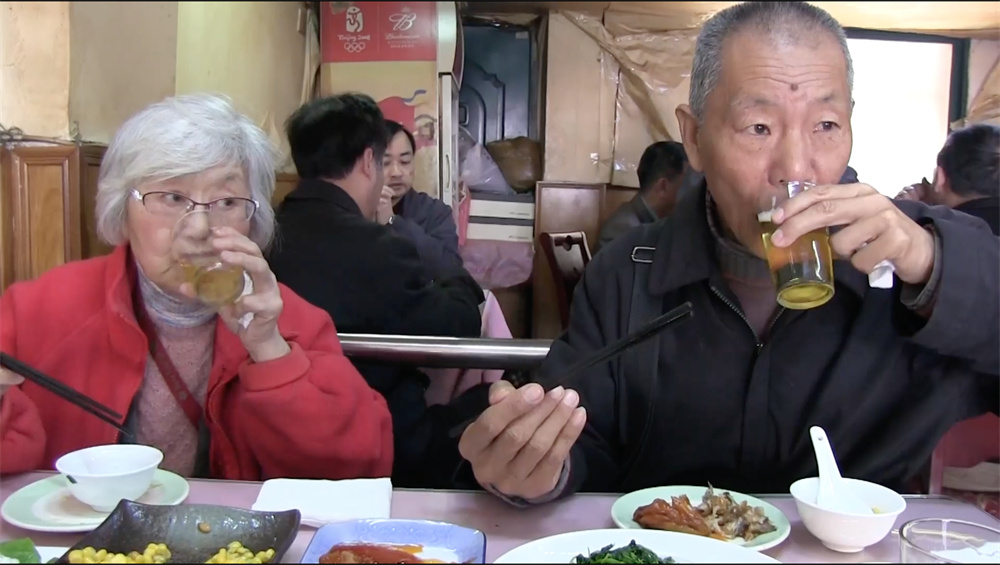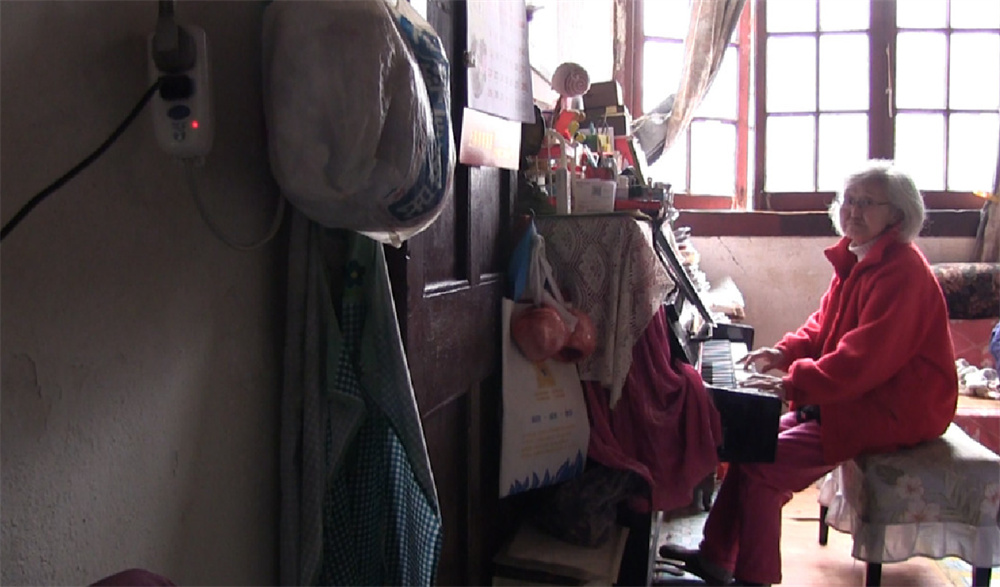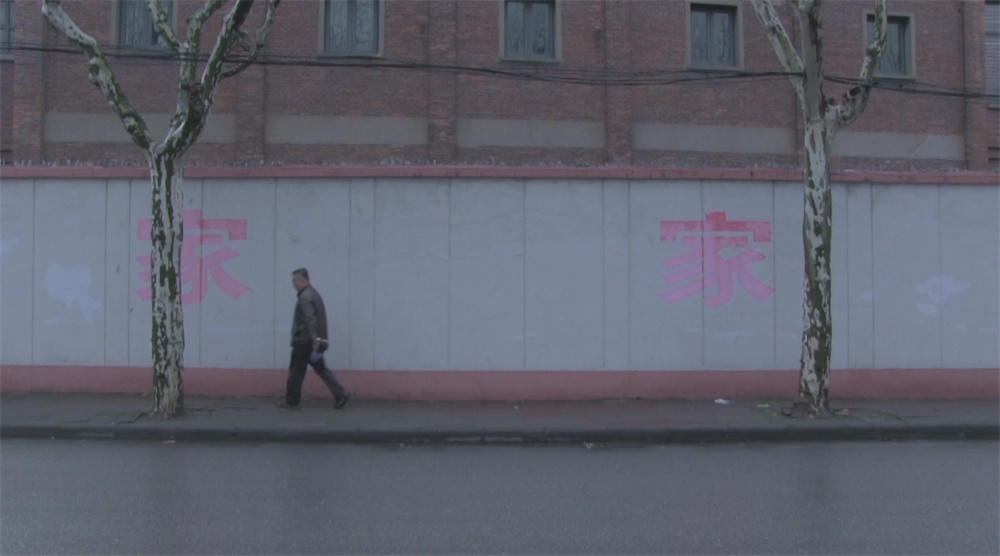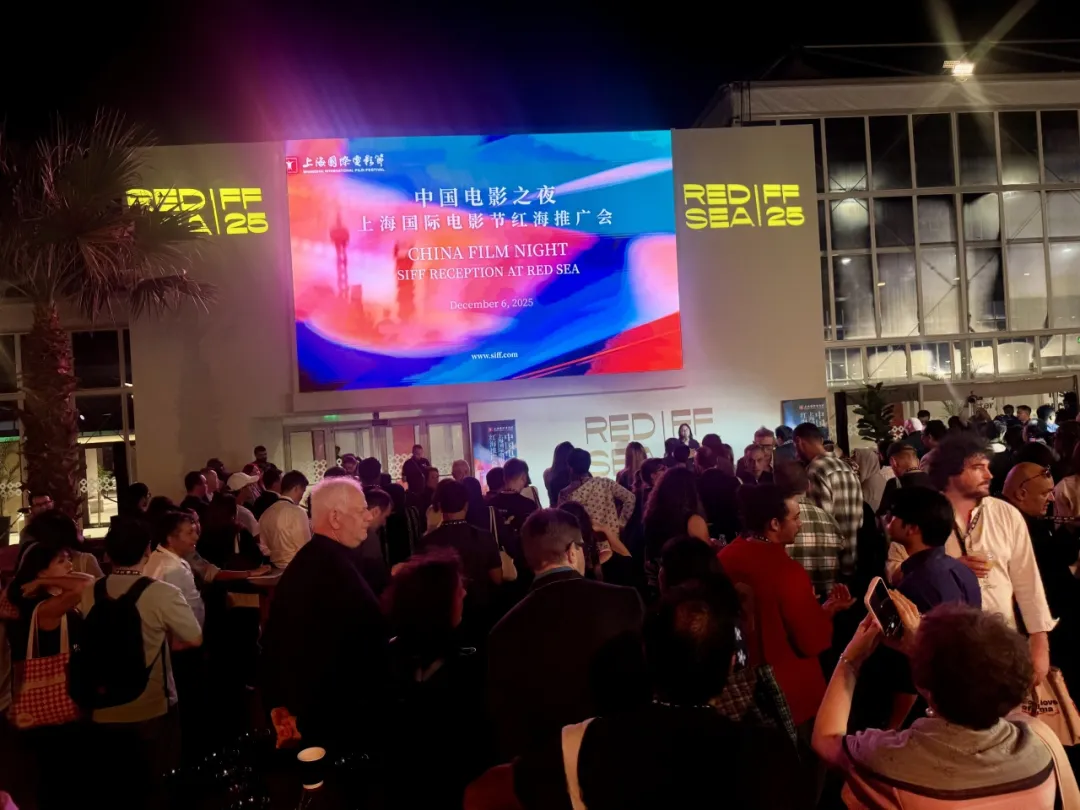
Among the several documentaries at this year's Shanghai International Film Festival, "Habitat" may be a relatively local one. The protagonist of the film's entire dialogue in Shanghai dialect will make local audiences feel extra cordial when watching. The Zhoushan Road alley shot in the film was also demolished with the buildings, leaving the film with a precious archive of urban changes. The theme of the film also focuses on a problem that has become increasingly prominent in aging Shanghai: elderly empty-nesters.

Habitat poster
When it comes to the "empty nest" old people, the stereotypes they leave to the public seem to be gray: in old age, without children, often suffering from diseases, the meaning of the rest of life seems to be a quiet bystander . The two protagonists of "Habitat", Sheng Zhengming and Wang Lele, belong to the group of elderly empty nesters. As a documentary, the time span of "Habitat" is as long as 5 years (2014-2019), and the two were nearly eighty years old when the film started.
The narrative of "Habitat" is centered on Sheng Zhengming and Wang Lele. The two met in the choir of the University for the Elderly, and they went to inspect nursing homes together. Like other empty nesters, Sheng Zhengming and Wang Lele also see living in a nursing home as a possible destination. To this end, they carefully visited several nursing homes and evaluated their advantages and disadvantages: how many people live in one room, whether there are matching toilets, the food quality is good, there are elevators for going up and down, how about the green environment, how much is the living cost, and even, the nursing home residents How is the level of culture...

"Habitat" stills
Sheng Zhengming and Wang Lele in the film did not live in a nursing home. Another thing the two have in common is their intention to go abroad. And this is the main line of the whole film. The two have different reasons for going abroad. Sheng Zhengming intends to go to Japan to visit his Japanese friend Konno, whom he met at the Japanese Corner in Hongkou Park in Shanghai more than 20 years ago, while Wang Lele wants to go to Canada to visit his only son who has already immigrated.
These two story lines have no connection and can basically be regarded as independent stories. Relatively speaking, the story line of Wang Lele is more universal - once again showing the "cultural conflict" of elderly immigrants on the screen. When she first came to Canada (Vancouver), the world in the eyes of the old man was full of freshness, and even the wild duck became her subject of photography. But when the initial surprise passed, Wang Lele's mood gradually fell. After all, this is a world very different from the crowded Shanghai. When he was in Shanghai, Wang Lele could say hello to countless people when entering and leaving the alleys, but in Canada, he might not meet a single person when he went for a walk. The weather and diet in Canada made Wang Lele feel uncomfortable, and even felt that "grapefruit is also big in Shanghai".
In the film, Wang Lele's son said to her, "Don't always try to change others", but the ruthless reality is that Wang Lele must change himself in a foreign country. At this time, perhaps only the piano is left for her life. In "Habitat", there are many scenes of Wang Lele, who was a kindergarten music teacher, playing the piano. It can be said that the sound of the piano carries the memories of most of her life, and it has also become one of the few sources of joy in life in a foreign country.

"Habitat" stills
Like Wang Lele, as an elderly person, Sheng Zhengming also has his own pursuit and spiritual sustenance. In contrast, his story is more touching and more tortuous. Konno returned to China in 1997, but was unable to walk due to illness, so although he kept in touch with Sheng Zhengming by letter, he never came to Shanghai again. In order to visit Konno in Japan, the first thing Sheng Zhengming had to pass was the "visa check". When the film was filmed, Japan had already opened the visa for individual travel in China, but the threshold of "employment certificate" and "income requirements" still blocked Sheng Zhengming from going to Japan for several years. When he finally overcomes difficulties and boards the plane to Japan, "Habitat" also ushers in the climax of the entire film.
Konno lives in Wakkanai City, a small town located at the northernmost tip of Hokkaido, which is equivalent to "Japan's Mohe". The local population is only over 30,000, far from prosperous, especially compared to Shanghai. Unexpectedly, when Sheng Zhengming followed the address in the letters to remote Wakkanai and found Konno's residence, he found that the building was empty. This is arguably the most tense moment in the documentary "Habitat". Fortunately, Sheng Zhengming had worked as a Japanese teacher, and this language advantage allowed him to seek help from the local Jiaoban (police station), which revealed the "suspense". Konno, who is over ninety years old, is still alive, living in a rehabilitation home for the elderly.
When these two aging friends meet again after more than two decades, the past comes to mind. Sheng Zhengming described in Japanese the experience of visiting Lu Xun Park and Nanjing Road with Konno in Shanghai, and looking at the unfinished Oriental Pearl TV Tower. Konno was already suffering from Alzheimer's disease at this time, and his memory was gradually losing. But he still remembers the experience of cooking Japanese-style curry rice for Sheng Zhengming when he was in Shanghai... This little thing that seems ordinary to others has become an unforgettable memory of this old man's life in a foreign country.
When Sheng Zhengming went to say goodbye to Konno when his visa expired, the word he used was "さよなら (sayonara)". In Japanese, this word is not simply "goodbye", but contains the meaning of "farewell". When the two said goodbye, they knew very well that they would never see each other again in this life (the end credits reminded that Konno passed away in the summer of 2019).

"Habitat" stills
Therefore, the title of "Habitat" is also intriguing. Literally, it just means "habitat". The dovecote in the alley that flashes past at the beginning of the film also seems to have a meaning. But on the other hand, "habitat" can be understood as the destination in the heart. Just as Wang Lele's "habitat" lies in the sound of the piano, Sheng Zhengming's "habitat" is the transnational friendship-the feat of an eighty-year-old man who went to a foreign country to visit his old friends alone, and the writing of "a confidant in the sea, the end of the world". Poems like "Zobi Neighbor" are also admirable.
As Sheng Zhengming's Japanese friend, Konno once sighed in the film, "I can't beat my age". The laws of nature are indeed irresistible to human beings. But old people can still choose how to live their lives. As the Welsh poet Dylan Thomas wrote, "Don't go gentle into that good night, old age should burn and roar at the end of the day; rage, rage against the dying of the light."


